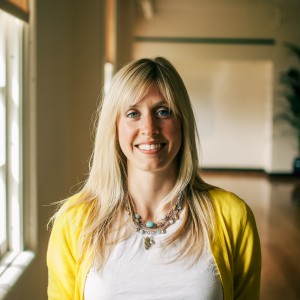Everest COO Krug ’04 Talks with Forbes

Katherine Krug ’04, COO and co-founder of tech startup Everest, was recently featured by Forbes contributor Leslie Bradshaw as part of a running series on the rise of female chief operating officers.
A psychology major as an undergraduate, Krug left the corporate world to become a tech entrepreneur, first founding a startup dedicated to changing the way nonprofits raise funds, before moving on to co-found Everest. Krug looks back on her decision to dive into entrepreneurship as one of the most personally fulfilling she’s ever made. “I now leave work everyday with more energy than when I arrived,” says Krug. “You can’t put a price on that feeling.”
Everest, an app designed to help people live their dreams and reach personal goals, allows users to break goals into small steps, get support and accountability, and beautifully capture their journey. Everest’s mission, says Krug, was inspired by her cofounders’ and her own life experiences. As a child Krug was a highly competitive gymnast with dreams of being in the Olympics. She developed a process for setting big goals and breaking them down into small steps she could take each day. Everest, Krug explains, aims to make that strategy available to the world through digital technology.
As a female COO in a tech industry still largely dominated by men, Krug has a unique perspective on the future of gender equality in business. As Krug notes in her interview with Bradshaw: “Female COOs are an especially great asset in the startup landscape, where the old boys’ club is often replaced by a young boys’ club. I can’t tell you the number of epic ego clashes I’ve witnessed among male executives. It takes much more than competitive drive and confidence to make a startup work.”
A fan of Sheryl Sandberg’s Lean In, the bestseller on women in business leadership roles, Krug notes that Sandberg’s book has helped begin important conversations on gender in the workplace which otherwise may never have taken place. Beyond Sandberg’s specific suggestions, Krug says, Lean In has created a context for gender issues that were kept below the surface to be openly discussed.

